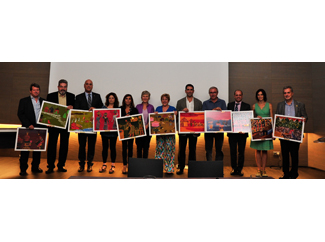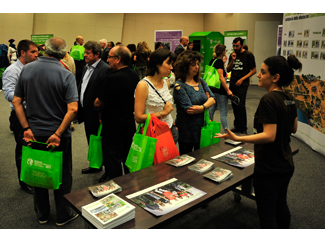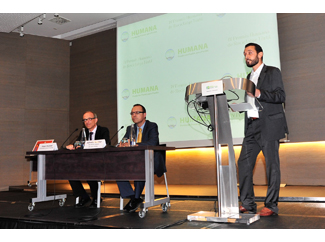consent_cookie
Duración: 1 year
Stores the user's cookie consent state
27-09-2013
About one hundred people participated yesterday in Barcelona at the Humana Day, dedicated this year to Climate Change. During the event was the awarding of the IV Textile Recycling Awards. The winners are:
These awards recognize citizens support programs provide environmental protection, development cooperation in South and welfare in Spain through its textile donations through containers located thanks to agreements with municipalities and entities private .
The importance of textile recycling
The general coordinator of Humana Fundación Pueblo para Pueblo, Jesper Wohlert said at the beginning of the event:" our reason for being is to promote the progress of communities in Southern countries through more than 400 projects we have underway. From here, we have attempted to address the consequences of climate change while improving the quality of life of the communities in which we work. "
He added : "All these projects would not be possible without the cooperation of citizens who give clothes and authorities and institutions. Therefore the collection, classification and management of clothing and footwear are key second-hand to continue our labor. Through this system not only fund projects but also promote sustainability and environmental friendliness as the textile recycling reduces waste and reduces greenhouse gas emissions".
Towards a low-carbon society
The Cap de l' Oficina Catalana del Canvi Climàtic, Salvador Samitier, said during his speech at the ceremony: "climate change may be a key to change certain behaviors and certain social and economic models that have, essentially energy and move towards a low-carbon society, ie a model less dependent on fossil fuels and more supported in a more native resources such as renewable energy".
"It is important for the economy to take into account the phenomena of climate change become more efficient and to assume that there will be certain things that will change. Climate will not be the same as the previous years we have had and we have to see how we adapt to this new reality , for example in water management , agriculture what we can do better , what crops are best adapted to an arid environment or how to manage forests and the forest".


